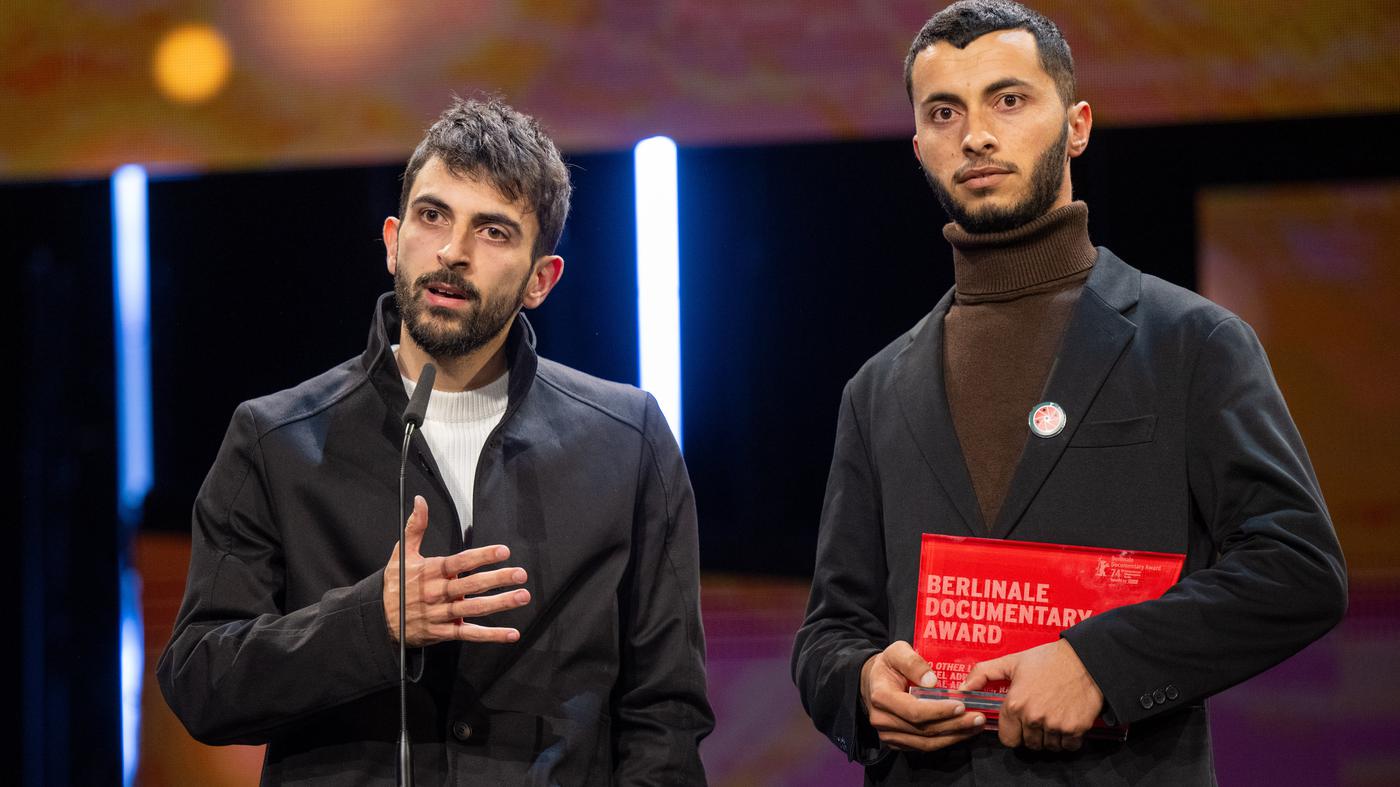The director Yuval Abraham posted it on Basel Adra’s film shows “anti-Semitic tendencies”. And it was completed after Hamas’ attack on Israel, “which is not reflected in this documentation.”
Abraham posted this early on Tuesday evening – the film was being presented at the Academy of Arts, followed by a conversation with the two directors.
On Wednesday morning, the two half-sentences disappeared on Berlin.de. Now the only description there is: “Palestinian-Norwegian documentary film, directed by Yuval Abraham, an Israeli, and Basel Adra, a Palestinian. The focus is on the lives of Palestinians in the West Bank and their suffering under Israeli occupation. The film was completed in 2023, after the Hamas attack on Israel.”
As a reminder: “No Other Land” won the award for best documentary at the Berlinale, and one-sided pro-Palestinian statements abounded during the award ceremony (Abraham and Basra also did not mention the terrorist attack on October 7th). Afterwards there were allegations of anti-Semitism against the festival and the organizers of the gala. The film itself criticizes the occupation policy and constant destruction of Palestinian houses in the southern West Bank; it also describes the Sisyphean work of the villagers repeatedly rebuilding destroyed houses. He is activist, critical of Israel, but not anti-Semitic.
© Yabayay Media / Antipode Films
The film was made not only by Abraham and Basra, whose friendship and collaboration is at the center of “No Other Land,” but by a four-person collective that also includes the Israeli camerawoman Rachel Szor and the Palestinian photographer Hamdan Ballal. And the Hamas massacre of October 7, 2023 is certainly named in the film’s epilogue.
When asked, Michael Ginsburg, press spokesman for the state of Berlin, simply pointed out that the film descriptions came from an external service provider. The content is published automatically on Berlin.de, and BerlinOnline GmbH, which is responsible for the content, has no editorial access to the texts and images. However, the GmbH asked the service provider “after a tip” for a correction, “which occurred around 10:30 p.m.”. A disclaimer about the change, the press office said, should be added promptly on Wednesday.
She also points out that the service provider also supplies other city portals. Published there automatically too. In fact, the original text with the passage about “anti-Semitic tendencies” can be found word for word on the portal www.in-muenchen.de, at least as of the editorial deadline for this article.
Yuval Abraham wrote in his post that it pained him to see “how, after the murder of much of my family in the Holocaust, the word anti-Semitism is being stripped of its meaning in order to silence critics of the Israeli occupation in the West Bank (the subject of our film). to legitimize violence against Palestinians.” As a left-wing Israeli, he no longer feels safe or welcome in Berlin and will take legal action.
The choice of words is crucial
However, the entry and its deletion are above all a symptom. For how the heated debate about the gala and the dispute over the demonstrably increasing anti-Semitism in Germany has taken on a life of its own.
After the gala, Berlin’s Senator for Culture and also Minister of State for Culture Claudia Roth thought loudly (and without result) about anti-Semitism clauses in cultural funding. Last week, the Bundestag passed the resolution “Never again is now”: a resolution with the character of a recommendation for better protection of Jewish life in Germany. Meanwhile, an anonymous service provider, whose name the press office does not want to disclose for the time being, shortens the complicated case of the Berlinale closing gala to the alleged anti-Semitic tendency of “No Other Land”. There was something there somehow, let’s write it down.
The Middle East conflict is only getting worse due to simplifications, inaccuracies and false attributions. Anti-Semitism at demonstrations in Germany, as on other occasions, cannot be dealt with through vagueness, shortening and misjudgment. Looking closely and choosing the words is often crucial. Automation or not: the state of Berlin would also have to take a look beforehand when it comes to such contentious, sensitive content on its own portal. So that you don’t have to do damage control afterwards.
